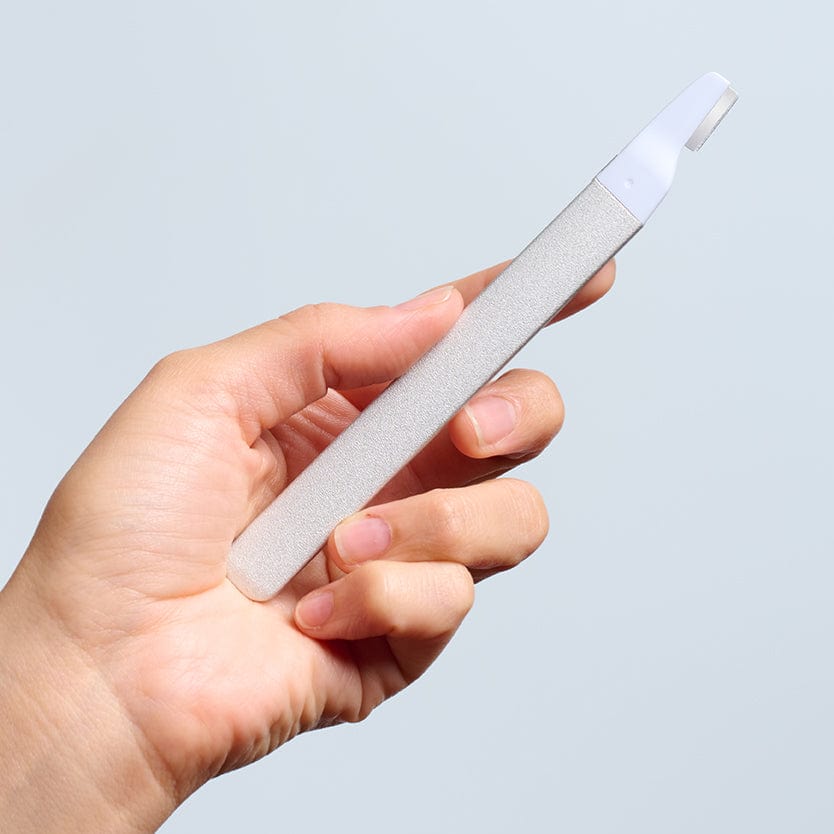Skincare Tips for Hormonal Skin Changes
Written by Kerry Benjamin

Because your skin changes with your hormones—so your skincare should, too.
Let’s get real: no one warned us how hard hormones could hit our skin. Suddenly, what used to work… doesn’t. You’re doing “everything right,” but your skin is drier, more sensitive, maybe even breaking out like a teenager—and the usual products just aren’t cutting it.
If that sounds familiar, you’re not alone. Perimenopause and menopause change the entire landscape of your skin. The shift in hormones—especially estrogen and progesterone—affects everything from hydration and inflammation to collagen production, oil balance, and sleep quality.
Here’s what’s happening, why it matters, and what you can actually do about it.
1. Estrogen Drops = Dry, Fragile, Thinner Skin
Estrogen is a powerhouse hormone for skin. It helps with collagen production, elasticity, hydration, and even skin thickness. But once it starts to decline during perimenopause and menopause, you may notice:
- Persistent dryness (even if you’ve always had oily skin)
- Crepey texture
- Increased fine lines and sagging
- Slower healing
This is the phase where your skin feels like it’s just “not holding moisture” anymore—and that’s because, without estrogen, it really isn’t.
What helps: Focus on hydration, layering and barrier support every single day:
- HA Hydrating Serum to draw moisture in
- Microbiome Rescue Moisturizer to rebuild the barrier with ceramides
- Shiunko Face Oil to lock it all in and prevent moisture from evaporating (aka TEWL)
You can’t shortcut this step. It’s foundational now.
2. Progesterone Drops Wreck Your Sleep—And It Shows on Your Face
If you’re waking up at 3:30 a.m. and can’t fall back asleep, blame progesterone. When it drops, sleep gets disrupted, cortisol rises, and your skin pays the price.
You’ll notice:
- Dull, tired-looking skin
- More inflammation and puffiness
- Slower recovery from stress or irritation
- Heightened sensitivity
Personally, once I started taking progesterone, I finally stopped waking up in the middle of the night. The difference in my skin, energy, and mood? Immediate.
What helps:
- Prioritize sleep hygiene, but also give your skin something to lean on
- Use the Ice Roller in the morning to calm puffiness and reduce inflammation
- Skip the actives on bad sleep nights—stick to hydration, barrier repair, and recovery
3. Breakouts? Yep, That’s Hormonal Too
Fluctuating androgens (like testosterone) can trigger breakouts around the jawline and chin, even if you never had acne before. And the worst part? Hormonal acne often shows up alongside dry patches, which makes treatment extra tricky.
What helps:
- Exfoliate with the Multi Acid TCA Face Peel 4–5x/week to keep pores clear
- Use the High Frequency Wand to kill bacteria and reduce inflammation
- Stay consistent with barrier support to prevent rebound oiliness
This is a balancing act—and it takes a gentle, targeted approach.
4. Your Skin Is More Reactive Now—Pay Attention
You may find that the things you used to love now cause stinging, redness, or even breakouts. That’s because with age and hormonal shifts, your barrier is thinner, and your skin doesn’t bounce back as easily.
This isn’t about throwing everything out—it’s about listening to your skin and adapting as needed.
What helps:
- Keep exfoliation and retinol in rotation, but don’t overdo it
- Use your Ice Roller to reduce irritation and redness post-treatment
- Think of hydration and repair as daily essentials, not optional extras
And If You Want to Go Deeper…
Skincare is powerful. But sometimes, your skin needs more than topicals can offer. If you’re considering hormone replacement therapy (HRT), talk to a specialist.
Once I started taking progesterone, my sleep changed almost overnight. No more middle-of-the-night wakeups. And estrogen? It helped my skin hold moisture again—and I even noticed new hair growth.
There are also promising peptides like Thymosin Beta 4 for inflammation and Sermorelin to support better sleep and recovery. If you’re curious, talk to a hormone-savvy doctor. Just know that you do have options.
Bottom Line: You’re Not Broken—Your Skin Is Just Changing
These shifts are part of life. Your body is evolving, and your skin is responding. That doesn’t mean you’ve done anything wrong. It means you get to respond differently—with more care, more intention, and way less shame.
Want to find the products and tools that actually work for your skin now? Take our quiz and get your custom Stacked method.
About the Author

Kerry Benjamin, a licensed aesthetician, has over 14 years of experience. Kerry is the driving force behind StackedSkincare. As the company's CEO, Kerry has dedicated her career to revolutionizing skincare. Her innovative approach combines peels, serums, and specialized tools to effectively address a wide range of skin concerns. CA LE license number Z98459.

